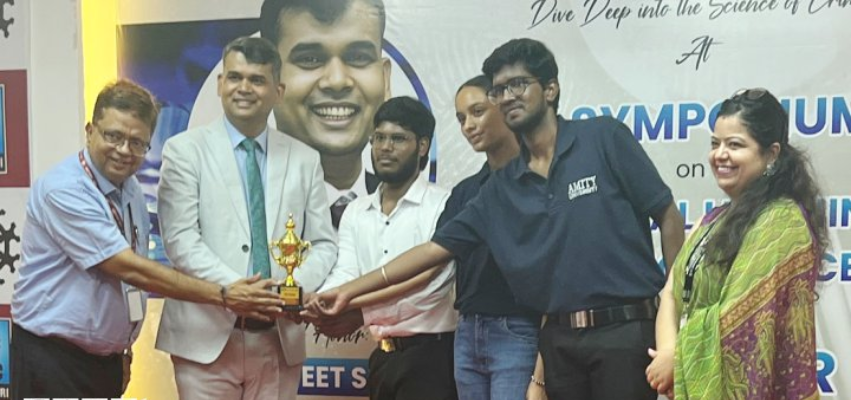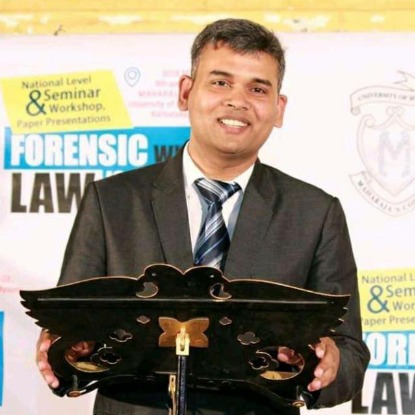As an advocate of experiential learning in forensic science, I had the privilege of delivering a lecture on "Experiential Learning in Forensic Sciences" at Chandigarh Group of Colleges (CGC), Jhanjeri. This session revolved around a simple yet powerful principle: the best way to master forensic science is by doing.
Forensic science is a dynamic field, blending scientific analysis with investigative techniques. While theory lays the groundwork, it’s hands-on practice that truly deepens one’s understanding, sharpens critical thinking, and prepares aspiring forensic professionals for the complexities of real-world challenges.
The Role of Experiential Learning in Forensic Education
During my talk, I stressed the importance of balancing theoretical knowledge with practical application. While textbooks provide foundational insights, the ability to apply those concepts in a controlled yet realistic environment is what transforms students into proficient forensic experts.
Forensic science isn’t just about what we know—it’s about how we apply that knowledge under the pressure of solving crimes. Crime scenes are unpredictable, requiring quick decision-making, attention to detail, and adaptability. These skills can only be honed through practice.
Why Hands-On Experience Matters
I shared real-life examples from my career to highlight how practical experience bridges the gap between academic concepts and professional execution. Here’s why hands-on learning is indispensable:
Crime Scene Management: Handling mock crime scenes teaches students how to secure evidence, document findings, and ensure the chain of custody.
Forensic Analysis: Laboratory exercises provide firsthand experience with analyzing fingerprints, DNA, and other evidence.
Critical Thinking: Simulations challenge students to think on their feet, develop hypotheses, and analyze outcomes logically.
Courtroom Presentation: Mock trials help students practice presenting findings confidently and clearly, a crucial skill for forensic experts.
Interactive Learning at CGC Jhanjeri
The students displayed remarkable enthusiasm during the session. Their curiosity and eagerness to learn made the lecture truly interactive. I encouraged them to ask questions, engage in discussions, and share their perspectives.
We explored how experiential learning aligns with the demands of the forensic industry. Many students were particularly interested in understanding how to develop skills such as crime scene photography, digital evidence recovery, and forensic report writing.
Blending Theory with Practice
I also highlighted how institutions can create effective learning environments by integrating practical components into their curriculum. Forensic workshops, internships, and collaborations with law enforcement agencies are invaluable.
At CGC Jhanjeri, I was impressed to see how the institution fosters a learning culture that encourages innovation and skill development. The students are not only taught to memorize concepts but are also challenged to think critically and solve problems creatively.
Building a Forensic Skillset
Forensic science is ever-evolving, and future professionals must adapt to advancements in technology and investigative techniques. I advised students to focus on developing skills in:
Emerging Technologies: Gain proficiency in tools like digital forensics software, 3D crime scene reconstruction, and biometric analysis.
Collaboration and Communication: Work effectively with multidisciplinary teams and present findings with clarity.
Ethical Practices: Always prioritize integrity and impartiality in investigations.
Empowering Future Forensic Experts
The response from students reaffirmed the importance of such discussions. Many shared how the session clarified their understanding of what it takes to excel in the field. It was heartening to see their commitment to pursuing careers in forensic science with passion and purpose.
A Vision for Forensic Education
In closing, I emphasized that experiential learning is not merely an option; it’s a necessity. By combining hands-on practice with theoretical insights, we can create professionals who are not just knowledgeable but also skilled, confident, and ready to face real-world challenges.
Chandigarh Group of Colleges, Jhanjeri, is setting an excellent example by fostering a learning environment that equips students with the tools they need to succeed. It’s initiatives like these that will shape the future of forensic science education in India.


